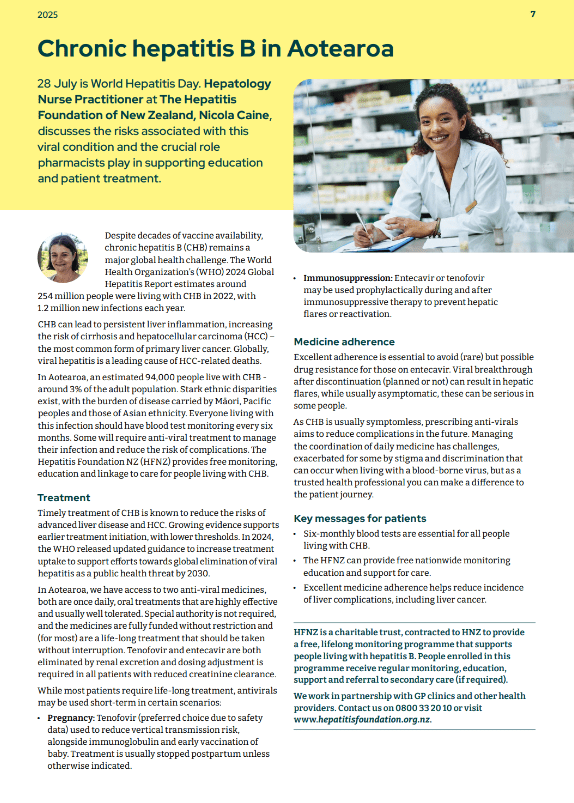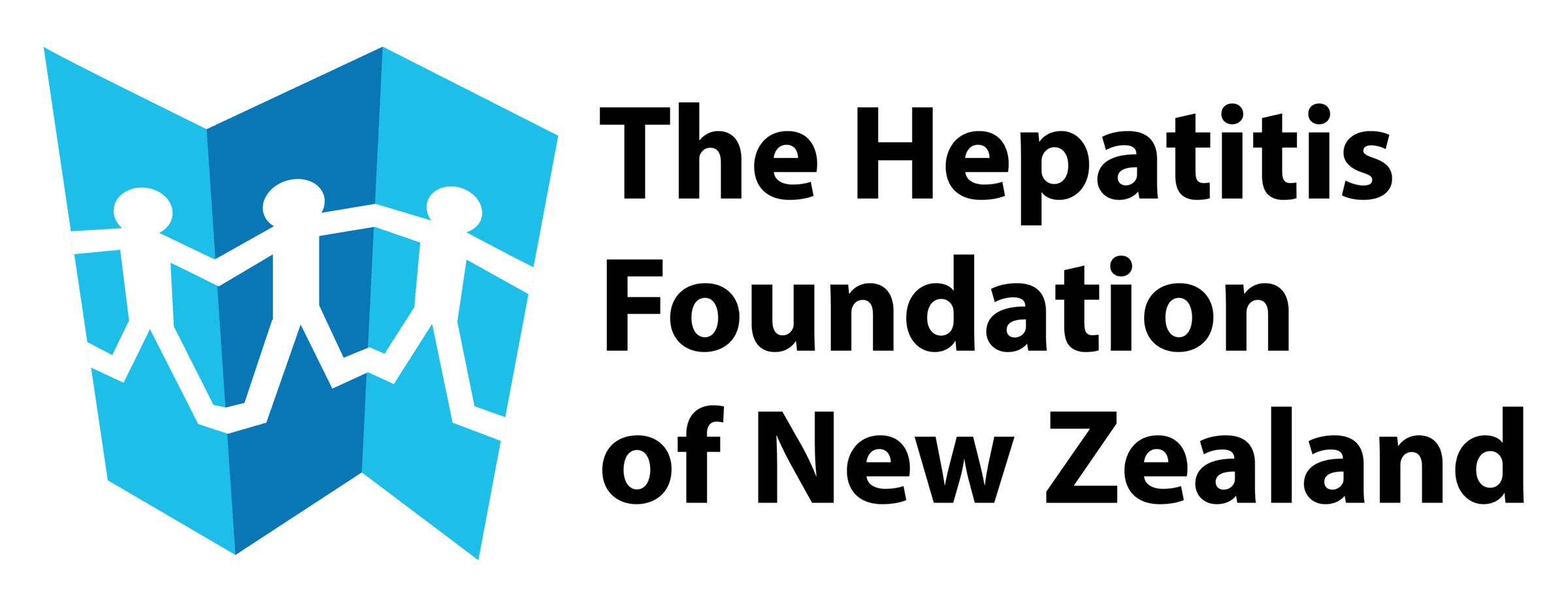28 July is World Hepatitis Day. Hepatology Nurse Practitioner at The Hepatitis Foundation of New Zealand, Nicola Caine, discusses the risks associated with this viral condition and the crucial role pharmacists play in supporting education and patient treatment.
Despite decades of vaccine availability, chronic hepatitis B (CHB) remains a major global health challenge. The World Health Organization’s (WHO) 2024 Global Hepatitis Report estimates around 254 million people were living with CHB in 2022, with 1.2 million new infections each year.
CHB can lead to persistent liver inflammation, increasing the risk of cirrhosis and hepatocellular carcinoma (HCC) – the most common form of primary liver cancer. Globally, viral hepatitis is a leading cause of HCC-related deaths.
In Aotearoa, an estimated 94,000 people live with CHB - around 3% of the adult population. Stark ethnic disparities exist, with the burden of disease carried by Māori, Pacific peoples and those of Asian ethnicity. Everyone living with this infection should have blood test monitoring every six months. Some will require anti-viral treatment to manage their infection and reduce the risk of complications. The Hepatitis Foundation NZ (HFNZ) provides free monitoring, education and linkage to care for people living with CHB.
Treatment
Timely treatment of CHB is known to reduce the risks of advanced liver disease and HCC. Growing evidence supports earlier treatment initiation, with lower thresholds. In 2024, the WHO released updated guidance to increase treatment uptake to support efforts towards global elimination of viral hepatitis as a public health threat by 2030.
In Aotearoa, we have access to two anti-viral medicines, both are once daily, oral treatments that are highly effective and usually well tolerated. Special authority is not required, and the medicines are fully funded without restriction and (for most) are a life-long treatment that should be taken without interruption. Tenofovir and entecavir are both eliminated by renal excretion and dosing adjustment is required in all patients with reduced creatinine clearance.
While most patients require life-long treatment, antivirals may be used short-term in certain scenarios:
Pregnancy: Tenofovir (preferred choice due to safety data) used to reduce vertical transmission risk, alongside immunoglobulin and early vaccination of baby. Treatment is usually stopped postpartum unless otherwise indicated.
Immunosuppression: Entecavir or tenofovir may be used prophylactically during and after immunosuppressive therapy to prevent hepatic flares or reactivation.
Medicine adherence
Excellent adherence is essential to avoid (rare) but possible drug resistance for those on entecavir. Viral breakthrough after discontinuation (planned or not) can result in hepatic flares, while usually asymptomatic, these can be serious in some people.
As CHB is usually symptomless, prescribing anti-virals aims to reduce complications in the future. Managing the coordination of daily medicine has challenges, exacerbated for some by stigma and discrimination that can occur when living with a blood-borne virus, but as a trusted health professional you can make a difference to the patient journey.
Key messages for patients
Six-monthly blood tests are essential for all people living with CHB.
The HFNZ can provide free nationwide monitoring education and support for care.
Excellent medicine adherence helps reduce incidence of liver complications, including liver cancer.
HFNZ is a charitable trust, contracted to HNZ to provide a free, lifelong monitoring programme that supports people living with hepatitis B. People enrolled in this programme receive regular monitoring, education, support and referral to secondary care (if required).
We work in partnership with GP clinics and other health providers. Contact us on 0800 33 20 10 or visit www.hepatitisfoundation.org.nz.
Published in July 202 Contact Magazine for Pharmacy Guild of New Zealand




